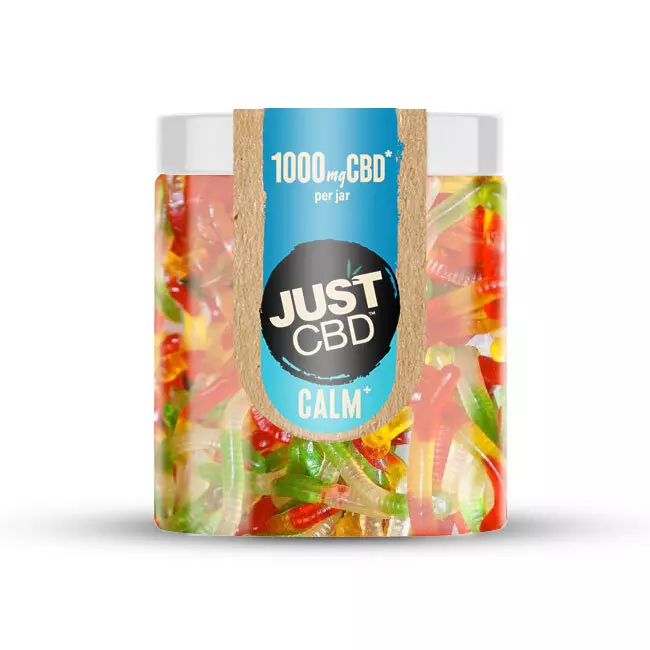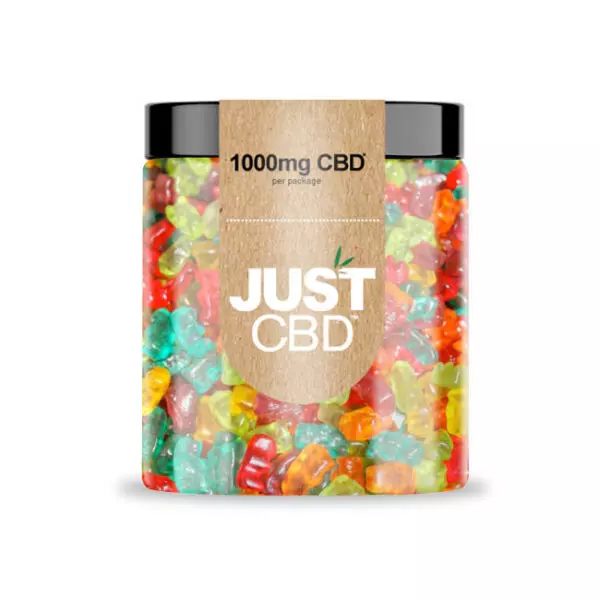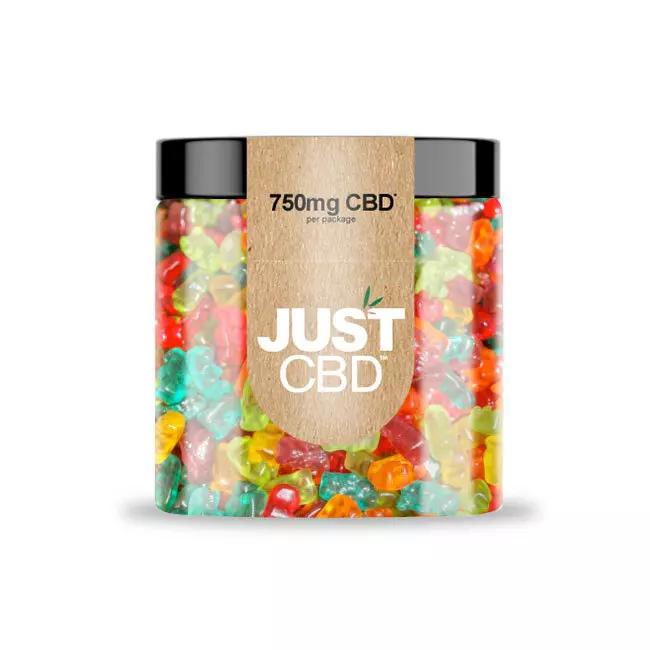Mechanisms of Action
Understanding how cannabidiol (CBD) gummies work to alleviate chronic pain and inflammation requires exploring their mechanisms of action.
Entourage Effect
CBD interacts with the body’s endocannabinoid system (ECS), a complex network of receptors, enzymes, and neurotransmitters involved in regulating various physiological processes, including pain perception, inflammation, and mood. The ECS plays a crucial role in maintaining homeostasis within the body.
One key mechanism through which CBD exerts its effects is by binding to CB2 receptors, which are primarily found in the immune system and peripheral tissues. Activation of CB2 receptors has been shown to reduce inflammation and pain signals.

Additionally, CBD modulates the release of neurotransmitters like serotonin, dopamine, and glutamate, which are involved in pain processing and mood regulation. By influencing these neurotransmitters, CBD can help alleviate chronic pain and improve overall well-being.
The “entourage effect” describes the synergistic interaction between various compounds found in cannabis plants, including CBD and other cannabinoids like THC.
When consumed together, these compounds work synergistically to enhance their individual effects. This means that CBD gummies containing other cannabinoids may be more effective than isolated CBD in managing chronic pain and inflammation.
CB1 and CB2 Receptor Interaction
CBD interacts with the endocannabinoid system (ECS), a complex network involved in regulating various bodily functions, including pain perception, inflammation, and mood. The ECS maintains homeostasis within the body.
One key mechanism through which CBD exerts its effects is by binding to CB2 receptors, primarily found in the immune system and peripheral tissues. Activation of these receptors has been shown to reduce inflammation and pain signals.
- CBD also modulates the release of neurotransmitters like serotonin, dopamine, and glutamate, which are involved in pain processing and mood regulation.
- By influencing these neurotransmitters, CBD can help alleviate chronic pain and improve overall well-being.
The “entourage effect” describes the synergistic interaction between various compounds found in cannabis plants, including CBD and other cannabinoids like THC. When consumed together, these compounds work synergistically to enhance their individual effects. This means that CBD gummies containing other cannabinoids may be more effective than isolated CBD in managing chronic pain and inflammation.
Anti-Inflammatory Properties
Understanding how CBD interacts with the body’s endocannabinoid system (ECS) is key to understanding its effects on chronic pain and inflammation.
The ECS is a complex network of receptors, enzymes, and neurotransmitters that regulates various bodily functions including pain perception, inflammation, and mood.
CBD primarily binds to CB2 receptors, which are concentrated in the immune system and peripheral tissues. Activation of these receptors has been shown to reduce inflammation and pain signals.
CBD also influences the release of neurotransmitters such as serotonin, dopamine, and glutamate, which play a role in pain processing and mood regulation. This modulation can contribute to pain relief and improved well-being.
The “entourage effect” describes how various compounds in cannabis, including CBD and other cannabinoids like THC, work together synergistically to enhance their individual effects.
Therefore, CBD gummies containing multiple cannabinoids may be more effective than isolated CBD for managing chronic pain and inflammation.
Scientific Evidence and Studies
Scientific evidence and studies provide valuable insights into the mechanisms behind how CBD gummies alleviate chronic pain and inflammation. Researchers investigate the interactions of CBD with the body’s endocannabinoid system (ECS), a complex network responsible for regulating various physiological processes, including pain perception and inflammation.
Clinical Trials on CBD for Pain Relief
Clinical trials exploring CBD’s efficacy for pain relief have yielded promising results. Studies indicate that CBD can reduce chronic pain associated with conditions such as arthritis, multiple sclerosis, and nerve injury.
Researchers attribute these pain-relieving effects to CBD’s interaction with the body’s endocannabinoid system (ECS), a network of receptors involved in regulating pain perception, inflammation, and other physiological processes.
CBD has been shown to bind to CB2 receptors, which are abundant in immune cells and peripheral tissues. Activation of these receptors can inhibit inflammation and reduce pain signals.
Furthermore, CBD influences the release of neurotransmitters such as serotonin, dopamine, and glutamate, which play crucial roles in pain processing and mood regulation.
Research on CBD’s Impact on Inflammation
Scientific evidence and studies provide valuable insights into the mechanisms behind how CBD gummies alleviate chronic pain and inflammation. Researchers investigate the interactions of CBD with the body’s endocannabinoid system (ECS), a complex network responsible for regulating various physiological processes, including pain perception and inflammation.
Clinical trials exploring CBD’s efficacy for pain relief have yielded promising results. Studies indicate that CBD can reduce chronic pain associated with conditions such as arthritis, multiple sclerosis, and nerve injury.
Researchers attribute these pain-relieving effects to CBD’s interaction with the body’s endocannabinoid system (ECS), a network of receptors involved in regulating pain perception, inflammation, and other physiological processes.
CBD has been shown to bind to CB2 receptors, which are abundant in immune cells and peripheral tissues. Activation of these receptors can inhibit inflammation and reduce pain signals.
Furthermore, CBD influences the release of neurotransmitters such as serotonin, dopamine, and glutamate, which play crucial roles in pain processing and mood regulation.
Case Studies and anecdotal Evidence

Scientific evidence and studies provide valuable insights into the mechanisms behind how CBD gummies alleviate chronic pain and inflammation. Researchers investigate the interactions of CBD with the body’s endocannabinoid system (ECS), a complex network responsible for regulating various physiological processes, including pain perception and inflammation.
Clinical trials exploring CBD’s efficacy for pain relief have yielded promising results. Studies indicate that CBD can reduce chronic pain associated with conditions such as arthritis, multiple sclerosis, and nerve injury.
Researchers attribute these pain-relieving effects to CBD’s interaction with the body’s endocannabinoid system (ECS), a network of receptors involved in regulating pain perception, inflammation, and other physiological processes.
CBD has been shown to bind to CB2 receptors, which are abundant in immune cells and peripheral tissues. Activation of these receptors can inhibit inflammation and reduce pain signals.
Furthermore, CBD influences the release of neurotransmitters such as serotonin, dopamine, and glutamate, which play crucial roles in pain processing and mood regulation.
Case studies offer anecdotal evidence of individuals experiencing relief from chronic pain and inflammation after using CBD gummies. While individual experiences may vary, these cases provide valuable real-world insights into the potential benefits of CBD.
It’s important to note that while scientific evidence and case studies suggest potential benefits, more research is needed to fully understand the long-term effects and optimal dosages of CBD for managing chronic pain and inflammation.
Consult with a healthcare professional before using CBD gummies or any other cannabis-derived products, especially if you have pre-existing medical conditions or are taking medications.
Dosage and Administration
Understanding dosage and administration is crucial when considering CBD gummies as a potential treatment for chronic pain and inflammation.
Recommended Dosage Guidelines
Dosage guidelines for CBD gummies can vary depending on factors such as the individual’s body weight, pain severity, and desired effects. It’s important to start with a low dose and gradually increase it as needed, under the guidance of a healthcare professional.
A common starting dose for adults is 5-10mg of CBD per gummy.
It’s advisable to take CBD gummies orally by swallowing them whole.
CBD gummies typically take 30-60 minutes to take effect, and the duration of effects can last for several hours.
Monitoring your body’s response is essential when taking CBD gummies. If you experience any adverse effects, such as drowsiness or upset stomach, reduce the dosage or consult with a healthcare professional.
Factors Affecting Dosage
Understanding dosage and administration is crucial when considering CBD gummies as a potential treatment for chronic pain and inflammation.
Dosage guidelines for CBD gummies can vary depending on factors such as the individual’s body weight, pain severity, and desired effects. It’s important to start with a low dose and gradually increase it as needed, under the guidance of a healthcare professional.
A common starting dose for adults is 5-10mg of CBD per gummy.
It’s advisable to take CBD gummies orally by swallowing them whole.
CBD gummies typically take 30-60 minutes to take effect, and the duration of effects can last for several hours.
Monitoring your body’s response is essential when taking CBD gummies. If you experience any adverse effects, such as drowsiness or upset stomach, reduce the dosage or consult with a healthcare professional.
Factors affecting dosage include body weight, age, metabolism, and the severity of symptoms.

Individuals with lower body weight may need lower doses, while those with higher body weight may require higher doses. Age can also influence dosage, as older adults may metabolize CBD differently. Metabolism plays a role in how quickly the body processes CBD, affecting its duration of action.
Frequency of Consumption
Understanding dosage and administration is crucial when considering CBD gummies as a potential treatment for chronic pain and inflammation.
Dosage guidelines for CBD gummies can vary depending on factors such as the individual’s body weight, pain severity, and desired effects. It’s important to start with a low dose and gradually increase it as needed, under the guidance of a healthcare professional.
A common starting dose for adults is 5-10mg of CBD per gummy.
It’s advisable to take CBD gummies orally by swallowing them whole.
CBD gummies typically take 30-60 minutes to take effect, and the duration of effects can last for several hours.
Monitoring your body’s response is essential when taking CBD gummies. If you experience any adverse effects, such as drowsiness or upset stomach, reduce the dosage or consult with a healthcare professional.
Potential Side Effects and Interactions
While CBD gummies offer potential benefits for managing chronic pain and inflammation, it’s important to be aware of potential side effects and interactions. Like any substance, CBD can interact with medications or pre-existing health conditions.
Common Side Effects
While CBD gummies are generally well-tolerated, some individuals may experience side effects.
- Common side effects of CBD include dry mouth, diarrhea, decreased appetite, and fatigue.
- Less common side effects may involve drowsiness, dizziness, or changes in mood.
It’s crucial to consult with a healthcare professional before using CBD gummies, especially if you are taking medications or have any underlying health conditions.
CBD can interact with certain medications, such as blood thinners and antidepressants.
Inform your doctor about all the medications you are taking, including over-the-counter drugs and supplements, to ensure safe and effective use of CBD gummies.
Drug Interactions to Be Aware Of
While CBD gummies offer potential benefits for managing chronic pain and inflammation, it’s important to be aware of potential side effects and interactions. Like any substance, CBD can interact with medications or pre-existing health conditions.
Although generally well-tolerated, some individuals may experience side effects from CBD.
- Common side effects include dry mouth, diarrhea, decreased appetite, and fatigue.
- Less common side effects may involve drowsiness, dizziness, or changes in mood.
It’s crucial to consult with a healthcare professional before using CBD gummies, especially if you are taking medications or have any underlying health conditions.
CBD can interact with certain medications, such as blood thinners and antidepressants.
Inform your doctor about all the medications you are taking, including over-the-counter drugs and supplements, to ensure safe and effective use of CBD gummies.
Considerations for Using CBD Gummies
Considering CBD gummies as a potential treatment for chronic pain and inflammation requires careful consideration. While they offer promise based on scientific research and anecdotal evidence, it’s essential to understand how they work, potential benefits, risks, and appropriate usage.
Choosing High-Quality Products
Choosing high-quality CBD gummies involves several key considerations:
Source and Extraction Methods:
Look for CBD gummies derived from organically grown hemp plants free from pesticides and herbicides. Opt for products using CO2 extraction, a safe and effective method that preserves the cannabinoids and terpenes in the plant.
Transparency and Lab Testing: ** Reputable manufacturers provide third-party lab testing results that verify the potency, purity, and safety of their products. These reports should list the exact amount of CBD per serving, along with any other cannabinoids or potential contaminants present.
Ingredients:** Examine the ingredient list for added sugars, artificial flavors, colors, or preservatives. Choose gummies with natural ingredients and minimal additives.
Full-Spectrum vs. Isolate: ** Full-spectrum CBD gummies contain a wider range of cannabinoids, terpenes, and flavonoids, which may enhance their therapeutic effects through the “entourage effect.” CBD isolate products contain only purified CBD, lacking other compounds found in hemp.
Dosage and Potency:** Select gummies with a CBD concentration appropriate for your needs. Start with a lower dosage and gradually increase it as needed until you find the optimal effect.
**Price:** Compare prices from different brands, but remember that higher prices don’t always guarantee better quality. Seek reputable brands offering transparent pricing and value for money.
Consulting with a Healthcare Professional
When considering CBD gummies for chronic pain and inflammation, consulting with a healthcare professional is crucial. They can help determine if CBD is appropriate for you based on your medical history, current medications, and individual needs.
A healthcare professional can guide you on safe dosages, potential interactions with other medications, and any potential risks or side effects.
They can also advise on the best type of CBD product for your specific condition and offer personalized recommendations based on your overall health status.
Individualized Treatment Plans
Understanding how CBD gummies work for chronic pain and inflammation requires exploring their mechanisms of action.
CBD interacts with the body’s endocannabinoid system (ECS), a complex network of receptors, enzymes, and neurotransmitters involved in regulating various physiological processes, including pain perception, inflammation, and mood. The ECS plays a crucial role in maintaining homeostasis within the body.
One key mechanism through which CBD exerts its effects is by binding to CB2 receptors, which are primarily found in the immune system and peripheral tissues. Activation of CB2 receptors has been shown to reduce inflammation and pain signals.
- Additionally, CBD modulates the release of neurotransmitters like serotonin, dopamine, and glutamate, which are involved in pain processing and mood regulation.
- By influencing these neurotransmitters, CBD can help alleviate chronic pain and improve overall well-being.
The “entourage effect” describes the synergistic interaction between various compounds found in cannabis plants, including CBD and other cannabinoids like THC.
When consumed together, these compounds work synergistically to enhance their individual effects. This means that CBD gummies containing other cannabinoids may be more effective than isolated CBD in managing chronic pain and inflammation.
CBD interacts with the endocannabinoid system (ECS), a complex network involved in regulating various bodily functions, including pain perception, inflammation, and mood.
CBD primarily binds to CB2 receptors, which are concentrated in immune cells and peripheral tissues. Activation of these receptors can inhibit inflammation and reduce pain signals.
CBD also influences the release of neurotransmitters such as serotonin, dopamine, and glutamate, which play crucial roles in pain processing and mood regulation.
Individualized treatment plans for chronic pain and inflammation involving CBD gummies should be developed in consultation with a healthcare professional.
Factors to consider include:
- Severity of pain and inflammation: Dosage and frequency of CBD gummy use may vary based on the individual’s pain levels.
- Medical history and current medications: Certain pre-existing conditions or medications may interact with CBD, requiring adjustments to dosage or alternative treatment options.
- Tolerance and response to CBD: Individuals respond differently to CBD, so starting with a low dose and gradually increasing it as needed is essential.
- Desired outcomes: Treatment goals may involve reducing pain, improving mobility, enhancing sleep quality, or managing other symptoms associated with chronic conditions.
Just CBD Gummies for stress relief
Get your favorite gummies with cbd at JustCBD
Plinr
Tasha
- New Patient Treatment Near Surbiton, Surrey - May 13, 2025
- How Do CBD Gummies Work For Chronic Pain And Inflammation - May 13, 2025
- How To Recognize And Avoid Love Bombing In Early Relationships - May 12, 2025
